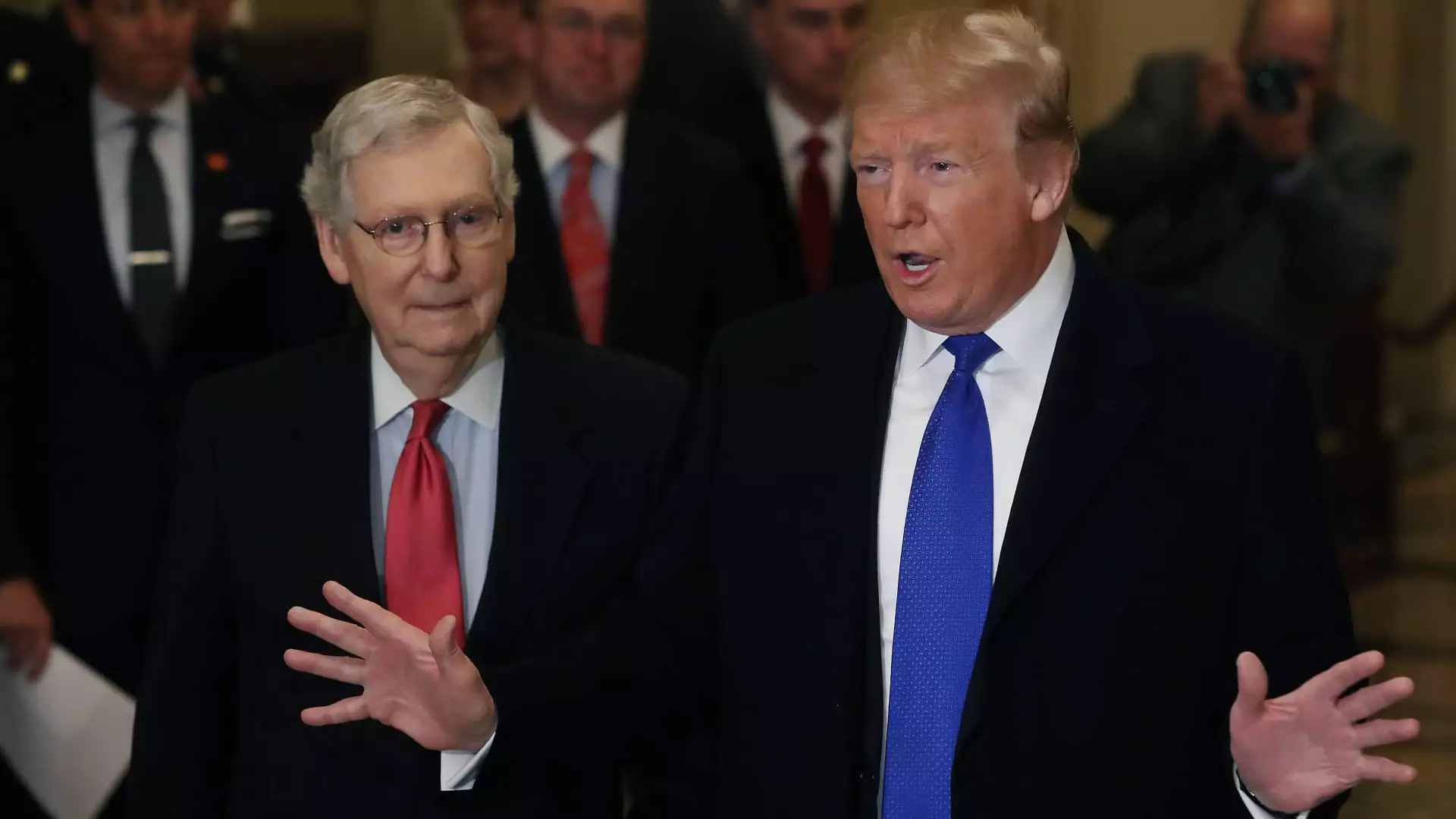In a recent op-ed, Republican Senator Mitch McConnell has taken a bold stand against President Donald Trump’s aggressive tariff policies, shedding light on the potential ramifications such domestic and international economic strategies could have on American families and businesses. This public dissent marks a significant moment for McConnell, who has shown a willingness to challenge Trump’s administration, especially in the context of economic practices that influence the delicate balance of trade relations.
McConnell highlights the risks associated with initiating trade conflicts with key U.S. partners. A trade war, as he suggests, poses a considerable threat to American industries, particularly for sectors heavily reliant on international trade. For instance, he emphasizes that Kentucky is home to approximately 75,000 farms that depend on exporting crops, alongside thousands of jobs linked to the auto industry, which thrives on global supply chains. Through this critique, McConnell illustrates how disruptive tariffs could reverberate through various layers of the economy, ultimately leading to increased prices for consumers and potential job losses.
Historically, the Republican Party has championed free trade as a means to foster economic growth and international collaboration. McConnell’s vocal opposition to tariffs signals a departure from this traditional stance, raising questions about the future direction of the party. His criticism suggests a palpable concern that continued adherence to Trump’s protectionist policies may alienate those within the party who hold steadfast to free-market principles. As the rift within Republican leadership deepens, it may become increasingly essential for party members to reassess their economic ideologies in light of evolving political dynamics.
Among the vital sectors McConnell underscores is the bourbon industry, a significant economic driver in Kentucky. In 2023, distillers in the state produced roughly 95% of the world’s bourbon, contributing immeasurably to the local economy. The previous year saw nearly $500 million worth of bourbon exported, underscoring its importance not just as a cultural emblem, but as a critical economic commodity. McConnell’s reference to bourbon illustrates how tariffs can ripple through local economies, making it harder for businesses to maintain competitive pricing in global markets. The potential increase in costs incurred by the imposition of tariffs could significantly diminish the industry’s profitability, threatening jobs in an already intricate economic landscape.
While McConnell acknowledges the need for enhanced border security and cooperation among U.S. allies, he firmly categorizes tariffs as “bad policy.” His insights offer a crucial counter-narrative to the prevailing sentiment portrayed by Trump’s administration regarding trade. As some Republicans align themselves with the president’s protectionist approach, McConnell’s stance may serve as a catalyst for debate within the party about economic strategies moving forward. As American families and businesses feel the weight of these policies, dialogues surrounding trade, tariffs, and economic sustainability must persist, ensuring that the U.S. fosters collaborative relationships that support both local and global economic growth.

Leave a Reply